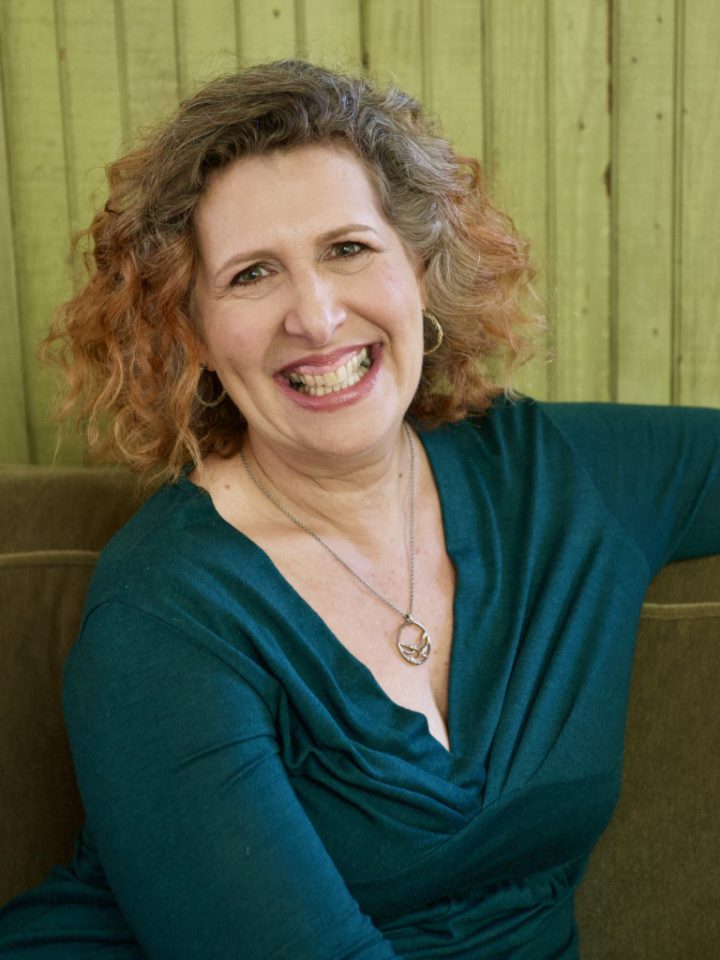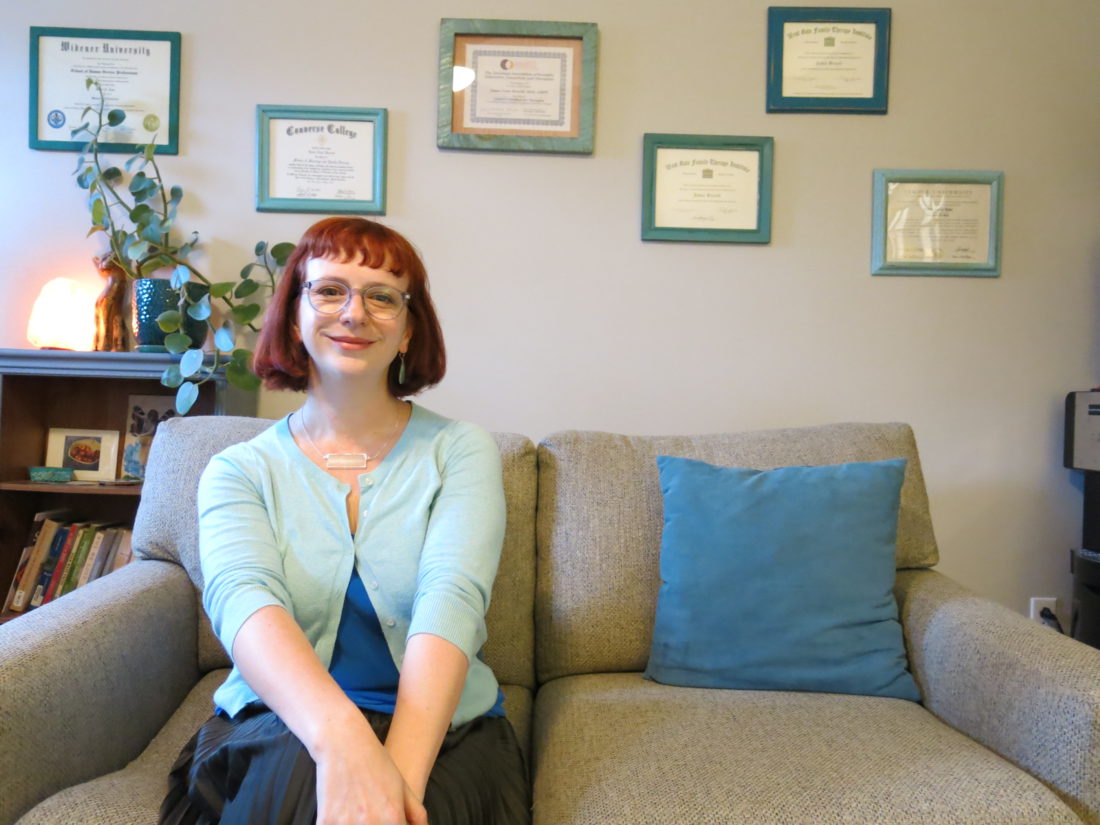The conversations sex coach Rebekah Beneteau has with new clients often begin with the same six words.
“Most of the people who come to me want to know, ‘Is it weird that I like … ?’” she reveals, adding, “Fill in the blank.”
Since 2012, Beneteau has worked with individuals and couples seeking to more fully embrace their sexuality and enhance their sex lives. A big focus of her work, she says, “is helping people recognize that there is no normal.”
The problem, Beneteau and others in the sexual health field maintain, is the misguided notion that there’s a standard set of sexual practices that individuals and couples should engage in.
“I think people just aren’t open about their sex and sexuality,” says local therapist Charlotte Taylor. “So the assumption is that everyone is doing the things they see in the movies, and that’s all you should want to do.”
Equally problematic, these experts say, are the mixed messages surrounding sex, as well as the historically heterosexual, cisgender, male-centric approach to sex education.
“You can arrive so far into adulthood without fully grasping the ins and outs of how your own body works,” notes sex therapist Jamie Brazell. “Or you arrive so riddled with shame that there’s a lot to work through.”
Far from simply providing instructions on Kegel exercises, sexual health professionals collaborate with patients on a broad range of topics: from the physical to the emotional, the sociocultural to the neurological. And though individual needs and treatments vary widely, many health seekers share an overarching concern: the fear that their bodies, beliefs or desires are abnormal.
“Normal,” emphasizes Beneteau, “is only the setting on a washing machine.”
Come as you are
In her 2015 New York Times bestseller Come As You Are, sex educator Emily Nagoski describes three common notions that are typically directed at young girls: the moral, medical and media messages.
The first, she writes, creates shame: “If you want or like sex, you’re a slut.” The second message fosters fear: “Sex can cause disease and pregnancy, which makes it dangerous.” The third contradicts the other two, thereby increasing anxiety: “If you’ve had too few partners, don’t watch porn and don’t have a collection of vibrators in your bedside table, you’re a prude. Also: You’re too fat and too thin; your breasts are too big and too small. Your body is wrong.”

Local sex educator Luna Dietrich says she received the first two messages in her youth, creating a distorted view of sex as something women endured rather than enjoyed. After graduating from Warren Wilson College with a chemistry degree, Dietrich traveled across Southeast Asia, where she met and fell in love with an Australian woman “who taught me about what it was to receive pleasure.” The relationship subsequently ended, but the experience profoundly altered Dietrich’s professional trajectory.
Returning to Asheville in 2015, Dietrich initially worked for a chemistry lab. To help her deal with the boredom of data entry, she listened to podcasts about sexuality and sex education; her evenings were spent reading books and blogs about those topics.
As her interest grew, so too did her desire to share and discuss her experiences and insights. In time, she designed a pleasure-centered course to help people love their bodies, primarily by confronting the three messages Nagoski identifies in her book. What began as a small workshop for women in 2015 has evolved into a full-time teaching career. Working primarily through online courses, Dietrich says she’s instructed over 1,500 men, women and transgender people from around the world.
“Some people think what I do is just teach people how to have a sexier life with their partner and how to have lots of sex and lots of orgasms,” notes Dietrich. “But my mission is to support people to get more embodied — meaning I help them find their center and release some of the trauma, and I help them disrupt some of the patterns that keep them from finding what they actually want. Or, to put it a little bit more woo-woo, I help people find their truth or find their ‘Hell, yes.’”
Kiss complacency goodbye
Of course, not everyone is pursuing such exalted goals. Some folks, particularly long-term couples, just want to put a little spice back into their love life. And for good reason, says sexual health counselor Aleece Fosnight: “We tend to get very complacent anywhere from 12 to 18 months into a relationship. We get into routines, and we don’t have that fire in our belly anymore.”
Kissing, she notes, is often the first thing to go. “There are pecks here and there, but kissing tends to get pushed to the side.” In other words, it tends to be exclusively viewed as an initiation tactic for sexual intercourse.
For couples interested in confronting their complacency, Fosnight may assign the “Come Closer Kiss” exercise as homework. Partners are instructed to lock lips, uninterrupted, for one to two minutes. Sex, she emphasizes, should not be the goal: Kissing for the sake of kissing is the objective.
The one- to two-minute rule, Fosnight explains, reflects the fact that it takes that long for the nerve endings in your lips to get stimulated and send signals to the limbic system in your brain. Once that’s triggered, the brain releases chemicals like dopamine, epinephrine, oxytocin and testosterone. “Those are all the good-feeling hormones that make you feel connected with somebody,” she says.
Patients who practice in the exercise often report a sense of delight, Fosnight reveals. “People get kind of giddy about it: They feel like teenagers again. They talk about how they’re trying to sneak around their kids” in order to kiss. “I tell them, ‘Go park and make out. What’s stopping you? Why can’t you still do that?’”
Savoring sensual pleasure
Among the reasons that individuals and couples might shy away from such activities are issues such as erectile disfunction, pelvic pain and Peyronie’s disease. These physical symptoms, experts say, often create performance anxiety, which can lead to sexual avoidance.

And while physical therapy and medications can be viable treatment options, another approach Fosnight likes to employ is a practice she calls “taking sex off the table.” So often, she notes, “The main focus is on penetration: Sex is the ultimate goal.”
Redirecting a patient’s attention to other avenues of pleasure, Fosnight reports, can help mitigate the psychological distress associated with performance anxiety. Activities that don’t involve intercourse include sensate exercises (touching and kissing without the expectation of sex), as well as mutual masturbation and oral sex. “Men can still have an orgasm without having an erection,” notes Fosnight. “Those are two different sides of the nervous system.”
Still, cultural norms and expectations can loom large in the equation — especially for men. “I have one patient right now who is struggling because he grew up understanding that if you’re a man, you have sex — that’s what you do,” says Fosnight. “I’m trying to help him understand and restructure those neural pathways in his brain to say that it’s OK to do other things.”
An in-depth conversation about cultural expectations may be enough to help a patient embrace alternative approaches to pleasure. For some, however, the cultural conditioning is just too strong. In such cases, Fosnight may recommend a penile injection, which produces an erection. Once the individual is firm, she then performs an ultrasound.
“A lot of times, it’s very positive for my patients to see that they have the potential to get an erection,” she explains. “And then for them to be able to look at the blood flow and other parts on a screen is superhelpful for them to understand why this is happening.”
Blind leading the blind
Chocolate is nice; flowers are too. But if you really want to improve your sex life, communication is key, experts say. The problem, these specialists point out, is that so few of us feel comfortable or knowledgeable enough to talk about sex.

“A lot of us didn’t get very good sex education in school,” notes sexuality counselor Heather Edwards. “And our parents didn’t really get good sex education, either. … And so here we are: adults in our own relationships, just figuring things out on our own.”
Inadequate education, she says, is an even bigger issue for members of the LGBTQ community. “For anyone who is queer, gay or trans, any sex education they might have received probably seemed like it didn’t apply to them because it was all super heteronormative and cisgender normative,” she explains. “So there are huge gaps that people face in understanding their bodies and how to talk about sex.”
Doctors aren’t immune to these shortcomings either.
“A lot of times, medical professionals don’t bring up sexual health concerns, because they don’t have an answer,” says Fosnight. “They weren’t trained in it, and they don’t want to look silly or stupid in front of their patients.”
To help address these gaps in training, she founded the nonprofit Fosnight Foundation, which aims to develop sexual health workshops for medical professionals. Although funding is still pending, Fosnight hopes to launch an initial offering this fall.
Such programs could greatly benefit everyone, but particularly members of the LGBTQ community and people in nonmonogamous relationships, says Edwards. “If you are a heterosexual, cisgender male doctor and a patient comes in who is a gay, transgender person who is polyamorous, that doctor is going to have zero [understanding]: They’re just going to sit there with their jaw dropped,” she asserts.
And to avoid those outcomes, continues Edwards, patients often withhold pertinent information from their primary physicians, putting their own well-being at risk.
We need to talk

In an effort to promote a healthier, more open dialogue about sex and sexuality, Edwards founded Vino & Vulvas in 2015. She describes the monthly gathering at UpCountry Brewing as “a fun version of adult sex ed.” A rotating roster of experts — including Brazell and Fosnight — serves up a wide range of perspectives. Previous presentations have included “Let’s Talk About Masculinity,” “Felyne Fetish Fitness,” “Relationship Structures: From Monogamy to Polyamory” and “Slamming Hot Sex for All Abilities.”
Vino & Vulvas’ mission is not to glorify any particular practice or desire, stresses Edwards; rather, the goal is to normalize topics that many in the community wish to discuss but lack the knowledge or confidence to broach. Despite the event’s name, she adds, all genders are encouraged to attend.
Along with listening to sex specialists discuss their areas of expertise, attendees can anonymously submit questions. Communication, says Edwards, is a common topic. “People want to know how to share what we’re teaching with their kids and how to communicate what we’re teaching to their partners.”
Another recurring theme is humiliation. “A lot of people want to know about overcoming shame,” Edwards reveals. “Or they want to know how to help their partner work through issues that are rooted in shame.”
At the end of these events, says Edwards, she often gets the sense that the audience is feeling relieved. “I think the biggest thing that people need is the permission to talk about things and the permission to feel things. … So just having a space that reminds people that — ‘Oh, yeah, I’m not alone in this feeling’ — is incredibly beneficial.”



Before you comment
The comments section is here to provide a platform for civil dialogue on the issues we face together as a local community. Xpress is committed to offering this platform for all voices, but when the tone of the discussion gets nasty or strays off topic, we believe many people choose not to participate. Xpress editors are determined to moderate comments to ensure a constructive interchange is maintained. All comments judged not to be in keeping with the spirit of civil discourse will be removed and repeat violators will be banned. See here for our terms of service. Thank you for being part of this effort to promote respectful discussion.